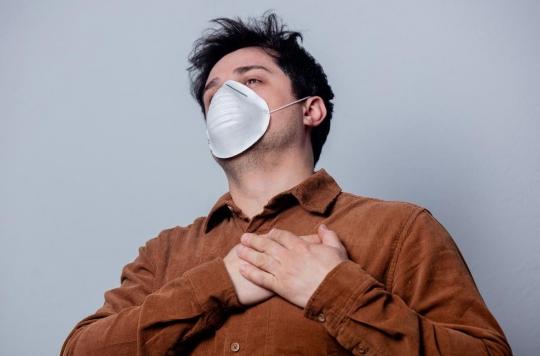A large majority of patients cured of Covid-19 retain cardiac sequelae due to the infection, even those who had a mild form of the disease.

- The first study showed that 78 out of 100 patients showed “structural changes” in their heart, 76 suffered from a heart problem and 60 showed signs of inflammation, without feeling abnormalities.
- The second study found signs of viral replication in those who are heavily infected.
A Covid-19 infection is not trivial. Two German studies, published in JAMA Cardiology Monday, July 27, reveal that in many patients, Covid-19 could lead to heart failure, a chronic and progressive disease in which the heart’s ability to pump blood throughout the body decreases. “These are two studies that suggest that being infected with Covid-19 carries a high probability of having some form of heart damage.”, advances Matthew Tomey, cardiologist and assistant professor of medicine at the Icahn School of Medicine at Mount Sinai Health System in New York, in commentary on the study.
Heart problems without symptoms
The first study suggests that two months after contamination with Covid-19, more than three quarters of people cured of their infection presented cardiac sequelae. It was carried out by German scientists from the Frankfurt University Hospital. For this study, the scientists compared the MRIs of the hearts of 100 people, aged 49 on average, who recovered from Covid-19 with those of 100 people of the same age who were not infected with the virus.
The results showed that 78 out of 100 patients experienced “structural changes” at the level of their heart, 76 suffered from a heart problem and 60 showed signs of inflammation, without feeling abnormalities. “The fact that 78% of recovered patients have evidence of ongoing cardiac involvement means that the heart is involved in a majority of patients, even if Covid-19 disease does not cause classic cardiac symptoms, such as angina chest painbelieves Valentina Puntmann, who led the study, to the specialized media STAT. In my opinion, the relatively clear onset of Covid-19 disease provides an opportunity to take proactive measures and look for early cardiac involvement..”
Unknown long-term consequences
The second study focused on studying people who died from Covid-19 infection. The autopsy of 39 of them, who died at the start of the pandemic at an average age of 85, revealed high levels of the virus in the hearts of 24 patients. “We see signs of viral replication in those who are heavily infectedobserved Dirk Westermann, cardiologist at the University Heart and Vascular Center in Hamburg. We don’t yet know the long-term consequences of changes in gene expression. I know of other diseases that it’s obviously not good to have this increased level of inflammation.”
These studies confirm the publication of the Academy of Medicine, dated July 15, which listed the sequelae of Covid-19. “The lung is the organ most frequently affected in the acute phase of the disease and epidemics due to other coronaviruses such as SARS-CoV and MERS-CoV have shown that pulmonary fibrosis can persist after the initial infection.”, wrote the Academy in a communicated. In addition to pulmonary fibrosis, inflammatory myocarditis, myocardial infarction or even right ventricular failure have been reported by experts.

.















